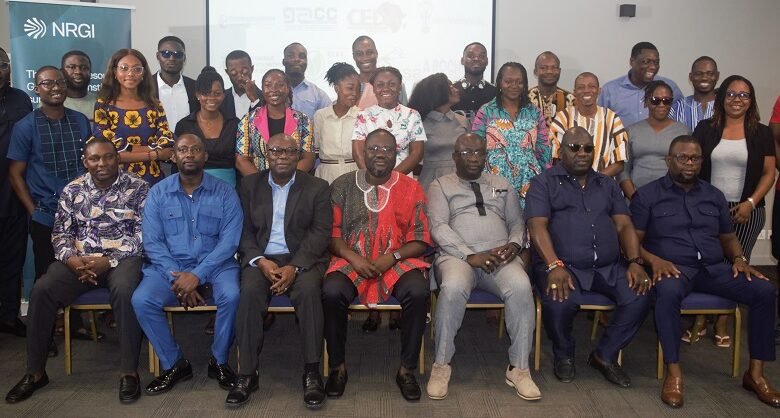Define framework for meeting renewable energy targets …CSOs to political parties

A coalition of Civil Society Organisations (CSOs) focused on energy and natural resources, has called on political parties contesting this year’s polls to clearly define their financing framework for meeting global renewable energy targets.
A financing framework is a structured plan outlining funding methods and sources for projects or businesses, focusing on budgeting, risk assessment, and compliance for effective financial management.
The global renewable energy targets require United Nations member states to reach net zero emissions from the energy sector by 2050 and triple renewable energy capacity like wind and solar by 2030.
Led by the Natural Resource Governance Institute (NRGI), the coalition of seven CSOs want the political parties to re-evaluate their manifestos and provide a clear procurement plan for renewable energy investments.
At a post-manifesto dialogue in Accra on Tuesday, the CSOs said the absence of these key strategies would not only make Ghana lag behind in the global energy transition process but suffer a huge toll from fossil fuel-based activities in the nearest future.
Attended by representatives from political parties, the dialogue created a platform for the CSO to point out gaps in the manifestoes outdoored by the various political parties.
The Africa Senior Programme Officer at NRGI, Mr Dennis Gyeyir, speaking on behalf of the coalition singled out the major political parties; the governing New Patriotic Party (NPP) and National Democratic Congress (NDC) as well as Movement for Change (MfC) that have taken “positive steps” in proposing initiatives for the energy sector.
“We have seen that their manifestos generally recognize the importance of the energy transition. For instance the NPP is talking about the need to achieve about 2,000 megawatts of solar; the NDC also is committing to reducing carbon emissions by accelerating renewable energy development, including mini-grids and they specifically mentioned some of the dams that they expect to build mini-grids on.
“We think that these are positive steps but like other developed countries that have targets, we don’t want to be the ground for dumping and so we are asking that they re-evaluate some of these plans, provide a clear implementation plan for the strategies and ensure that the targets are clear.”
According to Mr Gyeyir, energy and natural resources focused CSOs had earlier engaged the political parties and made proposals in key areas, including mining, forestry, environment, energy transition, oil and gas (upstream and downstream petroleum) and anti-corruption, for consideration in their manifestos in order to build a viable sector.
“Our analysis showed that the NPP and NDC have adopted about 40 per cent and less than 20 per cent for the Movement for Change although we are yet to see anything from the others.”
He said CSOs will not relent in demanding accountability from any party that forms the next government “by constantly reminding them of commitments in their manifesto to ensure progress in the energy and natural resources sector.”
The Anglophone Regional Manager of NRGI, Sebastian Tiah, said the dialogue was part of series of activities to sustain discussions on Ghana’s energy sector to meet domestic and global targets.
“We do acknowledge that the governance of our natural resources is very critical for our progress and our development as well as the energy sector and we will continue to advocate for the needed reforms.
“I’m sure that the journey will continue in January, when any government is sworn in and that’s where you’re going to open your doors to engage us and work with us to ensure that we can collaborate and improve the governance of these sectors and the governance of everything that concerns our country”.
BY ABIGAIL ANNOH
